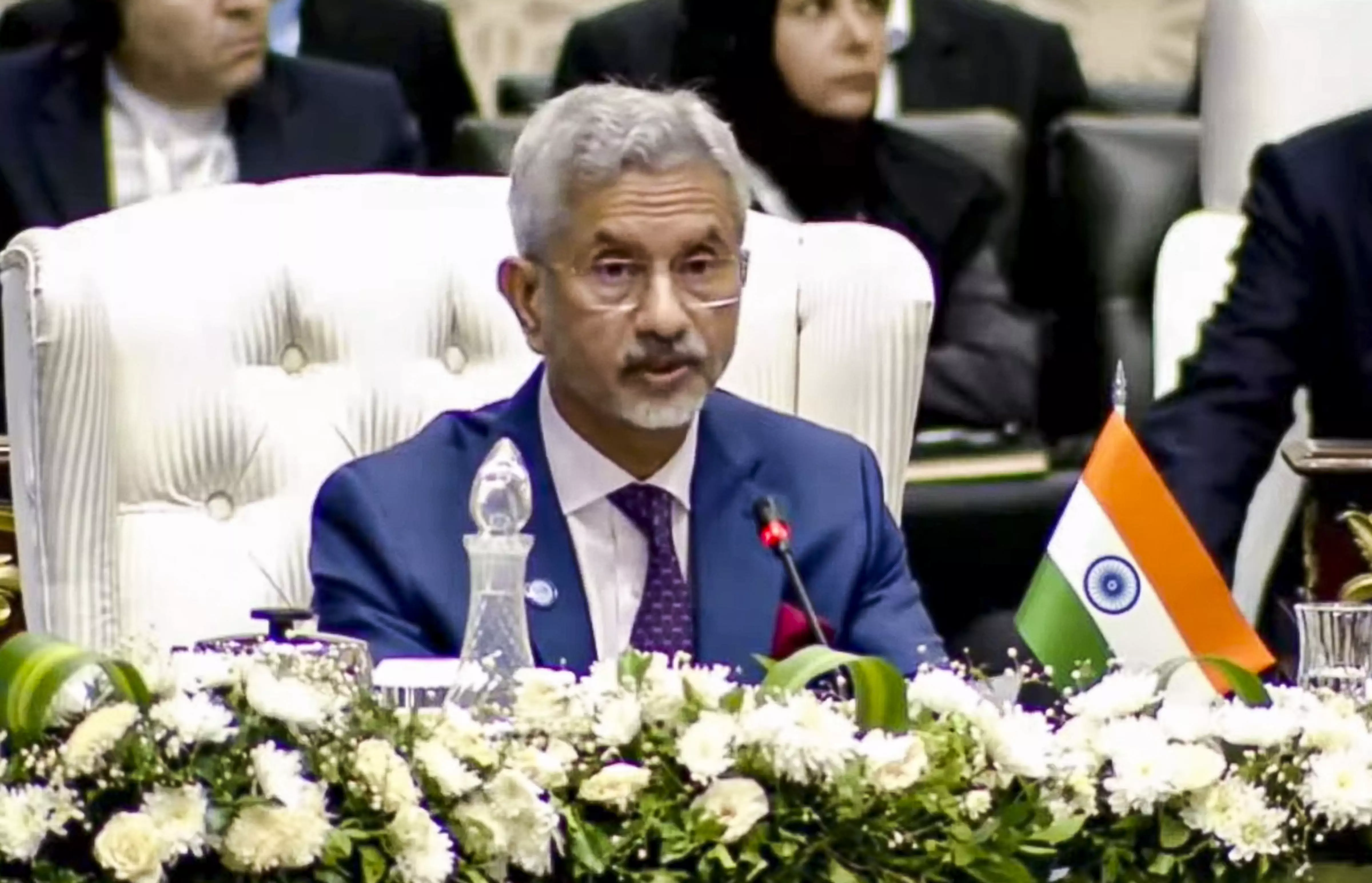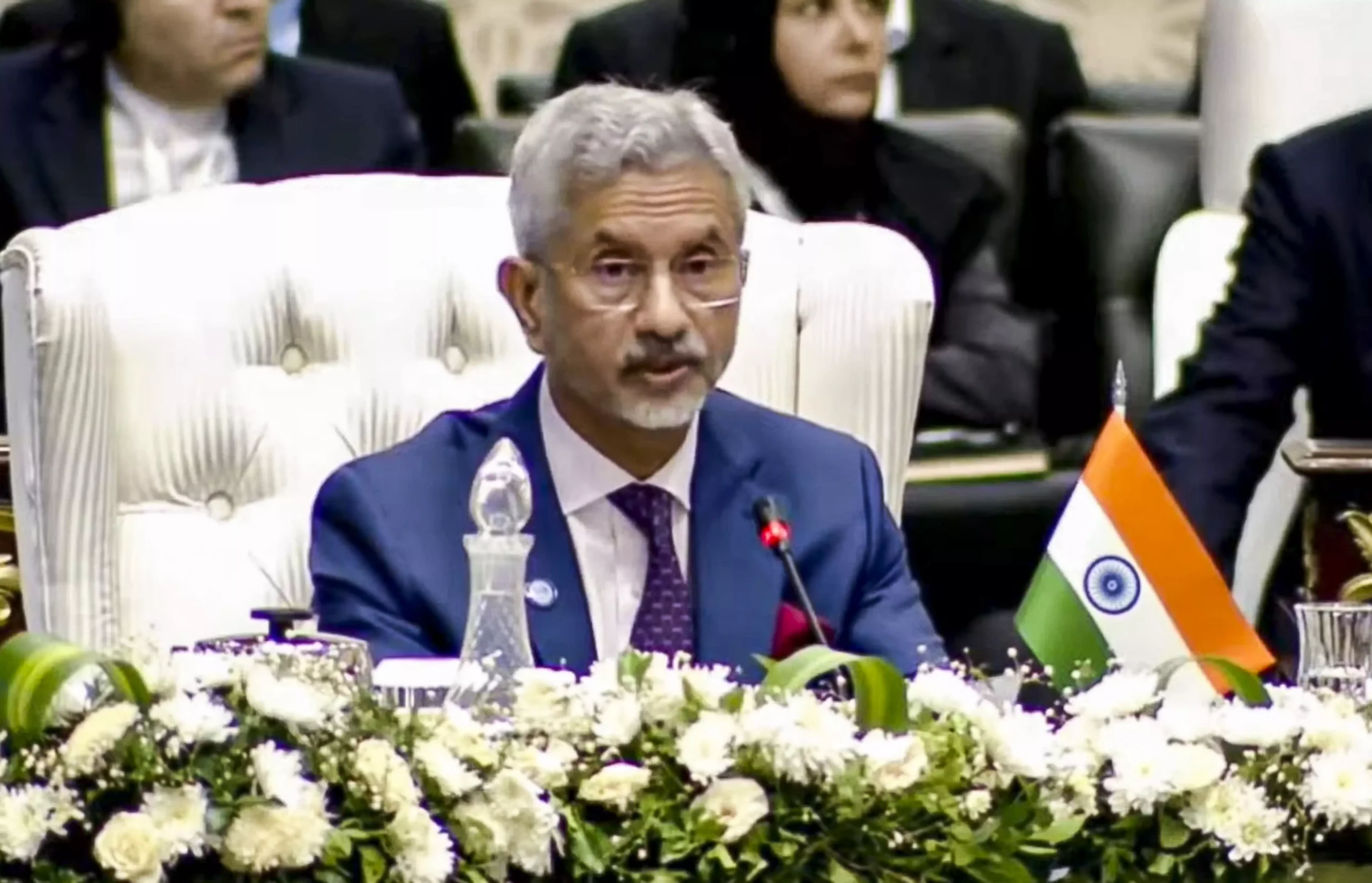
At the United Nations General Assembly session last month, and again at the Shanghai Cooperation Organisation heads of government meeting in Islamabad last week, India’s external affairs minister Subrahmanyam Jaishankar made it clear how this country’s sovereignty was under a twin attack of naked land grab by the Dragon empire and its South Asian vassal, the military-controlled sham democracy next door, for more than six decades.
At UNGA, the minister “criticised both China and Pakistan for undermining the territorial integrity of India” as “any connectivity that clouds sovereignty and territorial integrity acquires strategic connotations, especially when it is not a shared endeavour”. The China-Pakistan Economic Corridor (CPEC), a part of Beijing’s Belt and Road Initiative (BRI), is illegal as it intrudes into Jammu and Kashmir’s territory forcibly occupied by China and Pakistan. The worst is that it is not confined to J&K. The territorial violation and occupation, and eviction of Indian soldiers and citizens alike, are occurring and being endlessly explored in multiple sectors for years.
Has India forgotten its Constitution, making it a “sovereign, socialist, secular democratic republic”? The Constitution does allow India to “acquire foreign territory” but has serious impediments on ceding any, except for territorial adjustments subject to an amendment of the Constitution. Yet, India’s territorial integrity has been repeatedly violated by the Chinese for seven decades and there’s no sign that it will cease anytime soon.
The Chinese presence is visible today all across India’s entire land mass. Their penetration continues with the help of several “Chinese lobbies” which have evolved inside India. From think tank speakers keen on China jaunts to high-profile media, unscrupulous importers to money-laundering exporters, some members of chambers of commerce to warehouse-owning middlemen in third countries, financial and banking sector conmen to cultural festival organisers of Durga Puja events in West Bengal, and intellectuals-scholars in Rabindranath Tagore’s abode, the Chinese have built up a formidable network in this country and the numbers are rising.
What can one do if the entire country craves for cheap Chinese products, in a market where the consumer is king. It’s another matter that Chinese manufacturers can produce goods that are cheaper than similar Indian products simply due to hefty government subsidies, and of course there are no labour laws to contend with.
Interestingly, while China today is under pressure virtually from the entire world, India is acting as a benefactor to Beijing’s manufacturers. Both the United States and European Union are imposing stiff tariffs on Chinese-made electric vehicles (EV) and other industrial goods which pose a threat to their industry. The West is also trying to put curbs on Chinese investments. India, however, is yet to even consider restrictions on Chinese goods and investment. And in Europe, there’s a divide within the EU: Germany, Spain, Italy and Hungary are unhappy over the steep tariffs on Chinese-made goods, fearing Beijing counter-tariff imposition on their exports. As the Dragon’s enemies crumble from within, Beijing can afford to laugh at their discomfiture.
On the India-China border, after the massacre of 20 Indian soldiers in Ladakh’s Galwan Valley in June 2020 and the subsequent intrusions by the People’s Liberation Army from Ladakh to the Northeast, what should India do now?
The answer is simple: India needs to play to its strengths. It must re-visit its entire relationship with China — on territory and sovereignty in face of the chronic border expansionism by the PLA. If China is so sure that the entire Sino-Indian border problem is due to a mess-up by the British Raj and its legacy of imperialism, what explains the Communist Party of China’s stand and policy towards Nepal, which was always sovereign, and never under colonial rule?
Are these lines on Pages 69-70 of The Frontiers of China, by Francis Watson and published by Chatto & Windus (London; 1966), correct or incorrect? “Nepal, a tributary of the Chinese Empire from 1792 to 1816, came under British Indian protection in that year after the Gurkha War, but retained links with Tibet and, by Nepal-Tibet agreement of 1856, special representations and privileges. It (Nepal) also continued to send formal 5-yearly tribute-mission to Peking (Beijing) until 1908 but broke off the connection with fall of the Manchu Empire”.
“Under British guarantee and with a British Resident its independence was respected to such an extent that it could remain virtually a closed country. Mao Tse-tung’s view of Nepal as a territory of which China had been robbed by ‘unequal treaties’ was expressed as early as 1939.”
Is it, therefore, any surprise if China ceaselessly disrupts and dismantles the LAC in the Himalayas? The CPC’s mala fide intent of forcible grabbing of land or sea has neither any limit nor any end, as it never treats any country as an equal player in normal diplomatic exchanges. Creating disruption is the norm for the CPC.
Mao Zedong and his copycat successor Xi Jinping nurtured this aggression and unequal treatment for its neighbours, including India, to inject poison into the body politic. In the eyes of China’s Hans, the entire non-Han populace are nothing but barbarians as the former consider themselves as “Sons of Heaven”, operating from behind the thick walls of Beijing’s Forbidden City. Despite considerable pressure, India refused to succumb and join various Chinese projects like the BRI and RCEP. Had it done so, Indian law would have been violated and China would have become a “legal occupant” inside J&K. Internationally too, China’s aggression against India would have found fewer critics, holding India herself responsible for self-created misery.
If China regards Jammu and Kashmir, the McMahon Line, Arunachal Pradesh and Ladakh as disputed territories, New Delhi might consider paying it back in China’s own coin, and openly declare that Taiwan is sovereign, Tibet and Xinjiang are disputed land and South China Sea isn’t Chinese waters. How then would the supremo of the CPC and the mandarins of Beijing react?
It’s high time for India to become more pro-active about protecting its self-interest and upholding its sovereignty. Sixty-two years after the war of 1962, the Chinese today play more aggressive game, trying to undermine India from within through its economic leverage exercised by its well-entrenched powerful regional lobbyists. From a massive trade surplus to an industrial blitzkrieg with the help of unscrupulous Indian elements adept in scoring self-goals for their individual benefit, India has been forced to go on the backfoot. These rotten elements are repeating history to make India poorer and the Dragon richer! It’s high time to take decisive action to stamp out the Chinese lobbyists in India to deal with a congenital malice originating from north of the Himalayas.
